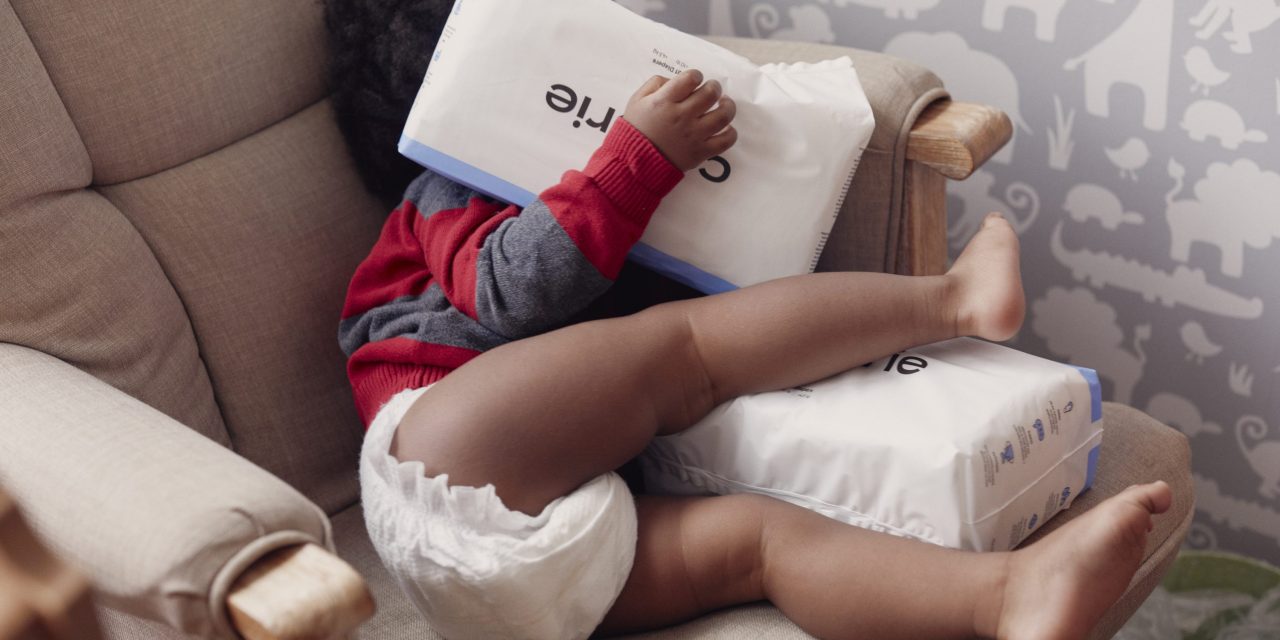How Coterie is making diapers into a splurge item for new parents

At $90 for a month’s supply, Coterie’s diapers cost roughly twice as much as market leaders at a big-box store. But that might be part of the appeal.
Coterie is getting millennial and Gen Z parents to justify a high price point for a disposable product by positioning itself as a parent-centric lifestyle brand. It promotes its super-soft diapers as a way to eliminate diaper rash and leaks, which in turn help a baby sleep through the night — a prospect that will have many new parents shelling out extra dollars.
In four years, it’s sold 150 million diapers, roughly 70 million of them in the past year. It has wooed an array of celebrity endorsements — including Ashley Graham and Karlie Kloss — and is seeing 180% year-over-year revenue growth for 2023. This growth parallels a maturation in the baby space, where more premium diaper brands are touting better-for-you materials. But Coterie is aiming to set itself apart by anchoring its marketing on what the product means for parents.
Founder and CEO Frank Yu said the idea is to show parents how Coterie can help reduce stress around diapering while promoting a worldview of parental well-being.
“Marrying those really important benefits to a lifestyle brand that can connect with our audience emotionally, that has been our secret sauce,” Yu said. “And the message we give to our parents is that, ‘Hey, you do not have to default to what your mother used on you. You don’t have a default to the status quo.'”
Focusing on the parents
Yu founded Coterie in 2019 after observing that the higher-quality diapers used in Japan didn’t have a U.S. counterpart. The major difference is in the materials, which are as soft as a t-shirt and can absorb about 70% more liquid than a traditional diaper.
A year after raising nearly $24 million in its Series A, Coterie has become one of the buzziest brands in the baby space. Most of its business is DTC, but its also sold in higher-end grocery stores like Whole Foods, Wegmans and Erewhon — as well as through Babylist and Pottery Barn Kids.
Jessica Frenchman Jacobs, svp of brand, creative and product management at Coterie, said diaper brands sometimes have had a “goo goo, gaga aesthetic.” And while Coterie uses plenty of cute baby photos, its marketing is “parent-centric” — such as showcasing how fewer leaks means better sleep.
Ad position: web_incontent_pos1
“Sleep is everything,” Frenchman Jacobs said. “Not just for the baby, but for you to show up as a parent and be your whole and best self for that new baby, being well-rested or as rested as you can possibly be.”
This manifests into a slightly edgy social media presence. Instagram posts frequently feature astrology or inspiring quotes alongside standard brand fare like product tips.
For Mother’s Day, Coterie ran a social campaign where it gave away a total of $20,000 to followers meant to support “you time.” The campaign had an overall engagement rate of nearly 3.9%, which was a 1,188% year-over-year increase. The contest helped bring in more than 3,600 new followers.
“Instead of using our campaign budget for a content shoot, or something of that sort for Mother’s Day, we really sat and thought about ‘What do moms want on Mother’s Day?'” she said. “At the end of the day, we just wanted to give cash to moms’ hands and let them decide.”
Coterie also posted about how it gave the day off after Mother’s Day and Father’s Day for its own staff to recharge. The holidays can simply become another over-scheduled day of to-do lists, and Frenchman Jacobs said the brand wanted to promote the idea of parents taking care of themselves.
Ad position: web_incontent_pos2
“It’s been really core to our DNA about this idea of supporting families, making their lives easier,” she said.
A crowded market
Dominique De Lope, senior manager of trade insights at What to Expect, recently published research examining motivations behind diaper purchases. There has been a rise of “eco-friendly” diaper brands, with more than 12 new brands entering the market in the past four years. They include manufacturers like Seventh Generation, Babyganics and The Honest Co., which promote their products as “clean” and “sustainable.”
“The newer brands in the category do position themselves as being more sustainable, kind of better for baby, and a more premium product than the traditional brands that existed in the market for decades,” she said.
But price continues to be the main consideration for parents, with three out of every four parents saying they are always looking for ways to save money on diapers. More than half of parents buy in bulk, or buy cheaper store brand diapers from Walmart, Target, Sam’s Club or Costco to save money.
Still, new parents are known to splurge in areas where health, safety and sleep are concerned, De Lope said.
“They might be more willing to spend more on products that are related to baby safety,” she said. “We’ve seen a lot of sensitivity for things that touch baby’s skin, or absorb into baby’s skin.”
Coterie has leaned into this trend extensively. In addition to the better-for-sleep claim, Coterie says its products undergo chemical compound testing to ensure there aren’t any trace toxic chemicals, and that they’re hypoallergenic.
Yu said that while the cost of Coterie diapers may seem high, parents are willing to pay for the value the product provides. The brand has also been able to overcome some of the high scrutiny around the price point because of the word-of-mouth referrals that happen with its product.
Parents listen when someone says it works, Yu said.
“There’s that inherent trust between parents word of mouth, you know, ‘This one was good, try this,'” he said. “People want to help. And a lot of community that word of mouth is built offline.”

